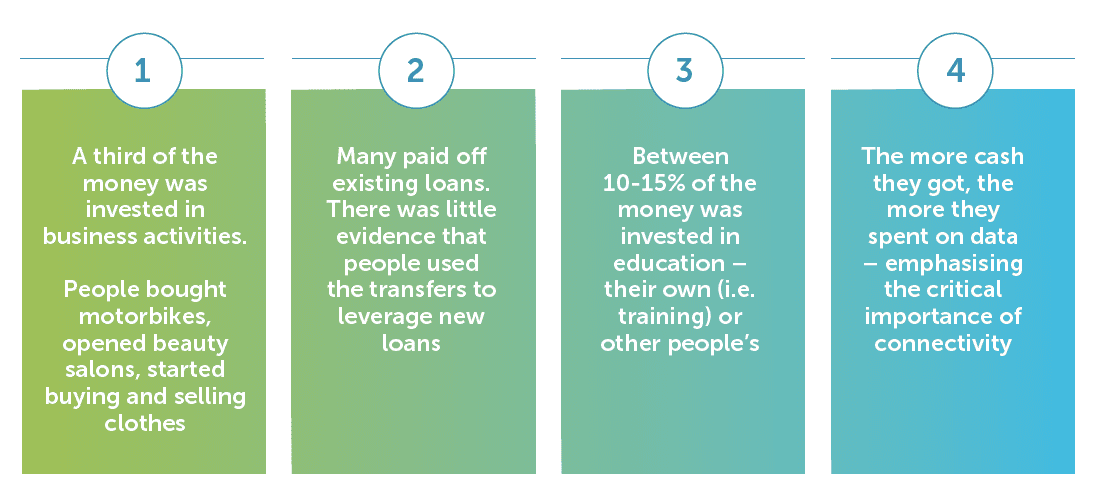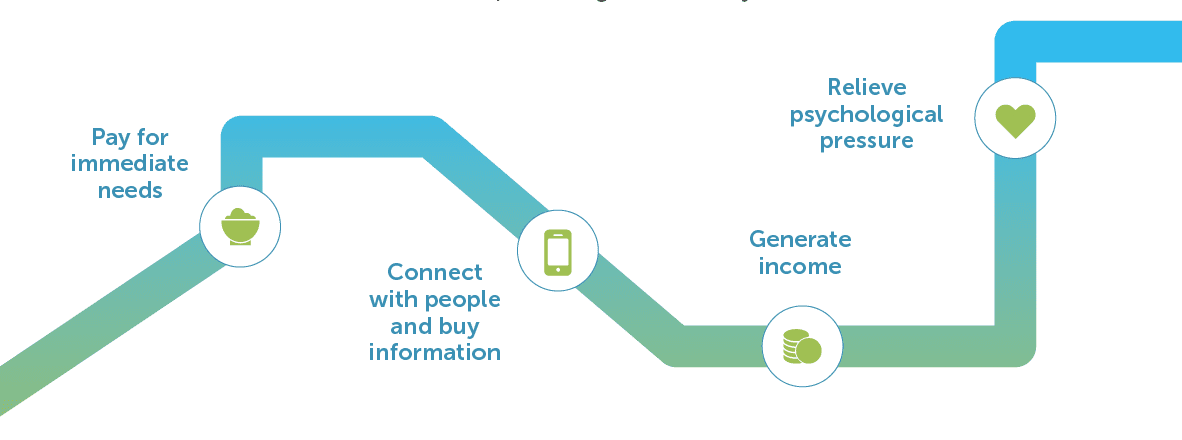Covid-19 is a health crisis, a human tragedy and an economic disaster. We know that cash transfers have been effective in humanitarian crises at alleviating economic hardship: they can be administered at scale, transparently, efficiently (no leakage) and on time.
Importantly, cash transfers mean that the people who receive them make their own decisions on how to spend their money, depending on their needs – whether on health, food or transport.
Currently, the only goal I have is to buy food for my family. We are facing hard times with the emergence of the virus affecting the whole world and I would do everything to keep my family safe. This is why I want to buy enough food so that my family do not get out until the virus is done away with.
Patrick, 26 – GiveDirectly beneficiary
FSD Africa has been supporting cash transfers in Mathare, Nairobi, for over a year, working with 1,000 beneficiaries, all young people trying to get ahead in informal business. There was no evidence they misused their transfers (KSh5,000 per month) – on the contrary, we see evidence of rational, prudent money management.
 Further details can be accessed here. The Youth Enterprise Grant pilot, supported by FSD Africa, GiveDirectly and Mastercard Foundation, offers insights that are relevant for the Covid-19 crisis. Cash is empowering for the way it can be used to:
Further details can be accessed here. The Youth Enterprise Grant pilot, supported by FSD Africa, GiveDirectly and Mastercard Foundation, offers insights that are relevant for the Covid-19 crisis. Cash is empowering for the way it can be used to:

The evidence from this research is consistent with other evidence on cash
- Nobel prize winner Abhijit Banerjee (2017) et al found no evidence that cash transfers reduced people’s propensity to work
- In 2017, the UK government’s Independent Commission on Aid Impact said that cash transfers were good value for money and had helped to make vulnerable people more resilient to shocks: “There is no evidence of an increase in unhealthy consumption choices (eg increased spending on alcohol or gambling) and in some cases there is evidence of a decrease. The most impressive finding is from Kenya, where beneficiary households spend significantly more of their overall income(not just the cash transfers) on food, health and clothing, and significantly less on alcohol and tobacco”
- There is<a”https://www.devex.com/news/opinion-5-ways-cash-transfers-are-improving-humanitarian-response-91882″> general consensus around the use of cash transfers as an effective instrument in humanitarian aid in particular
If you are interested in providing cash to vulnerable people at this time, get in touch with:
- Mark Napier at FSD Africa, mark@fsdafrica.org
- Mark Laichena at GiveDirectly, mark.laichena@givedirectly.org




